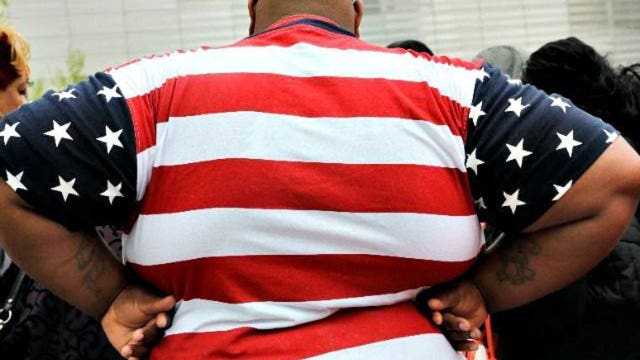Newest device to help combat obesity epidemic
A noninvasive procedure called vBloc uses a neuromodulator to communicate between the stomach and brain, said to suppress appetite
The obesity rate among adults in the United States is now at 37 percent, a 12 percent increase from 2000, according to the Centers for Disease Control and Prevention (CDC). But now, technology firm Enteromedics is offering up a pace maker-like device called vBloc as one option to help combat the national epidemic. It’s a palm-sized neuromodulator that alters signals, blocking communication between the stomach and brain which suppresses the patient's appetite.
"vBloc is a device that we implant in a patient using a minimally invasive approach that allows us to be able to adjust the way that the Vagus nerve communicates from the stomach to the brain," Dr. Kenneth Mitchell, medical director of Roper St. Francis Bariatric Surgery Division in Charleston, told Fox News.
During the procedure, the neuromodulator is placed directly under the skin, and two wires called leads are connected to the Vagus nerves on the stomach. Patients can return home the same day of surgery, and the device is activated two-to-three weeks later. It is controlled with a computer program that wirelessly communicates with the device, and can stay implanted in for the duration of a patient’s life. vBloc is activated for approximately 14 hours per day and uses a rechargeable battery that can be charged by the patient. Doctors believe the battery can last up to 10 years.
Cathy Newell, of South Carolina, struggled with weight loss for years and decided she wanted to give vBloc a try.
"I was afraid I was going to be headed to diabetes if I didn't do something" Newell said. "Then having a parent that died at age 60, and I'm 58, was kind of an eye opener. It's time to get myself together and get healthy."
She discovered vBloc after attending a seminar and called Roper St. Francis in Charleston for more information. That's where she met Mitchell.
"When you do bypass surgery it's like a plumber going in and have to rework and re-plumbed everything," Newell said. "He said vBloc surgery is like hanging a picture on a wall. That caught my attention."
Newell received the implantin December 2016 and said she is happy with the results.
"I can tell a difference,” she said.“I'm eating less, my appetite is suppressed somewhat, my cravings decreased. This weight loss will be slow and I knew that from the get-go. Slower is better anyway."
vBlock was approved by the Federal Drug Administration in 2015 is available in 11 states. So far, 74 patients across the country have undergone the procedure, which targets those who have tried dieting for more than five years. No results on the effectiveness have been published yet.
The surgery and device costs $18,500 and is not covered by most insurance companies. The expense is the main concern expressed by Dr. Nina Crowley, the coordinator for the South Carolina Metabolic & Bariatric Surgery Program.
"Here at MUSC we definitely have a higher percentage of patients who have Medicare or Medicaid insurance" Crowley told Fox News. "So, I don't know many patients that can afford procedures that would be that expensive. If 30 percent of our population is struggling with obesity, what percentage of those patients can actually afford a procedure that's close to a car?"
A spokesperson for Enteromedics stated they have future plans to help patients considering the procedure.
"Obtaining payer coverage of vBloc will allow vBloc to be part of the standard of care for physicians who are fighting obesity," the spokesperson said.









































